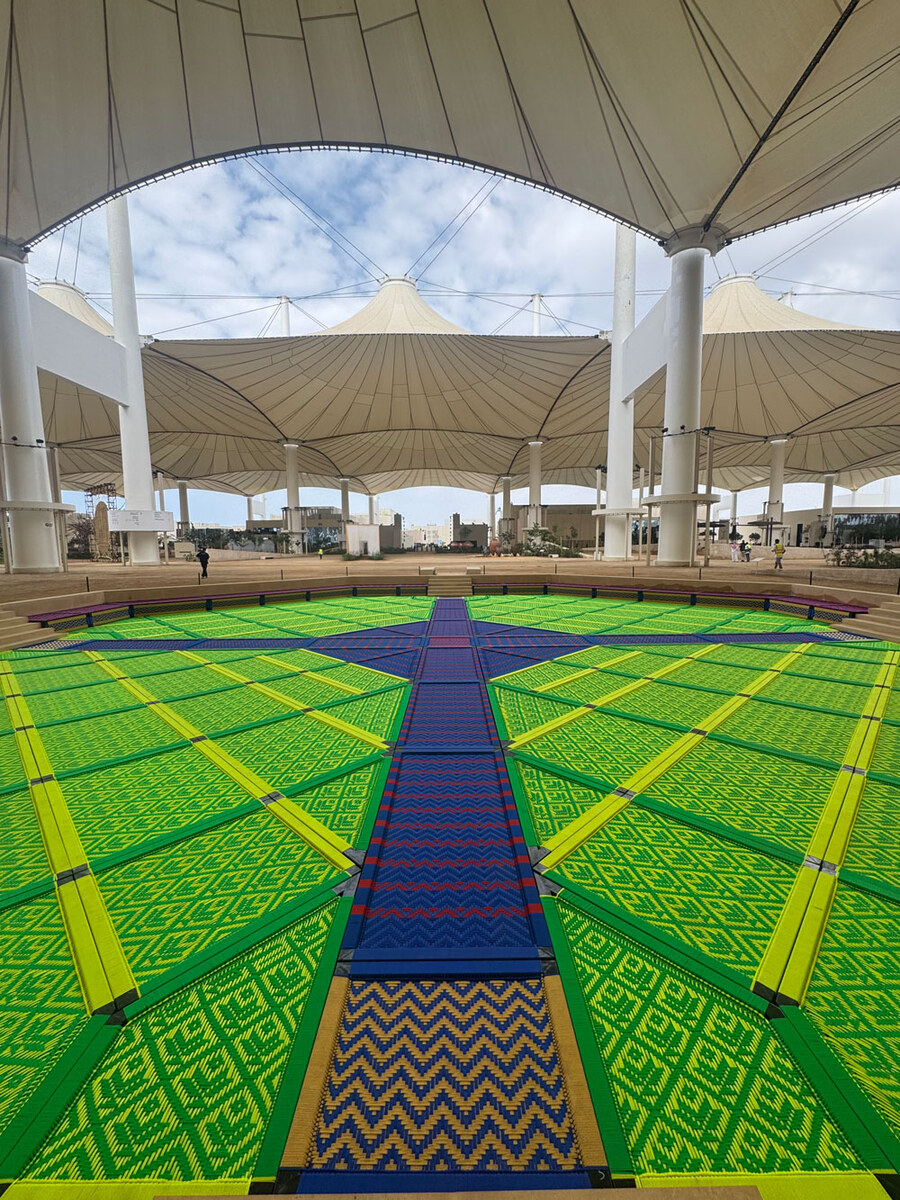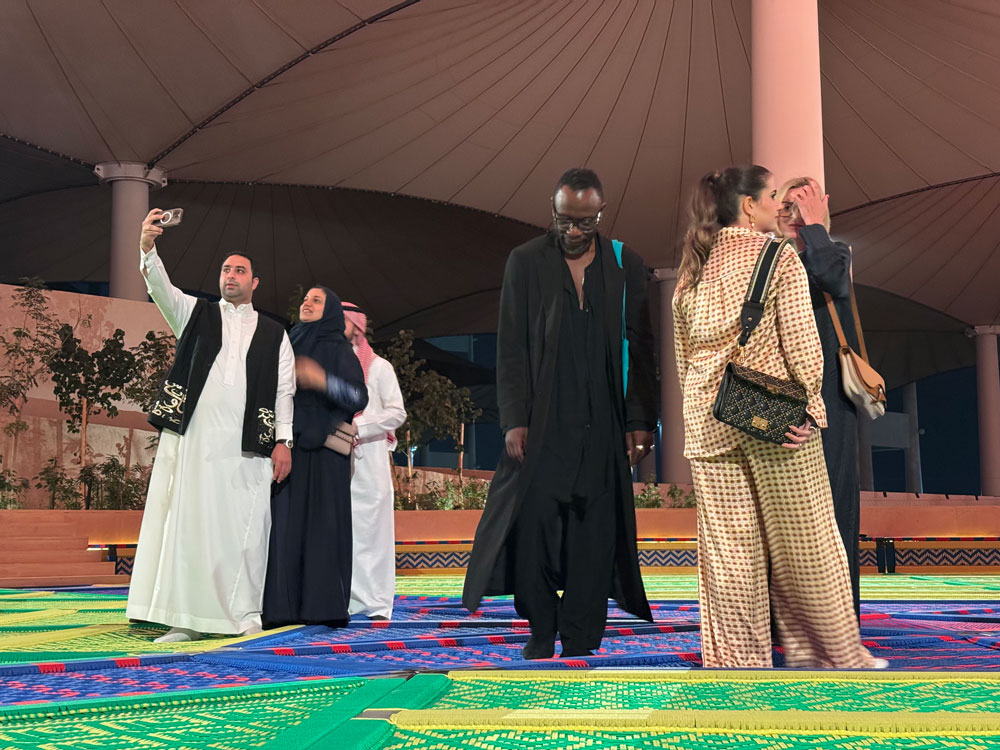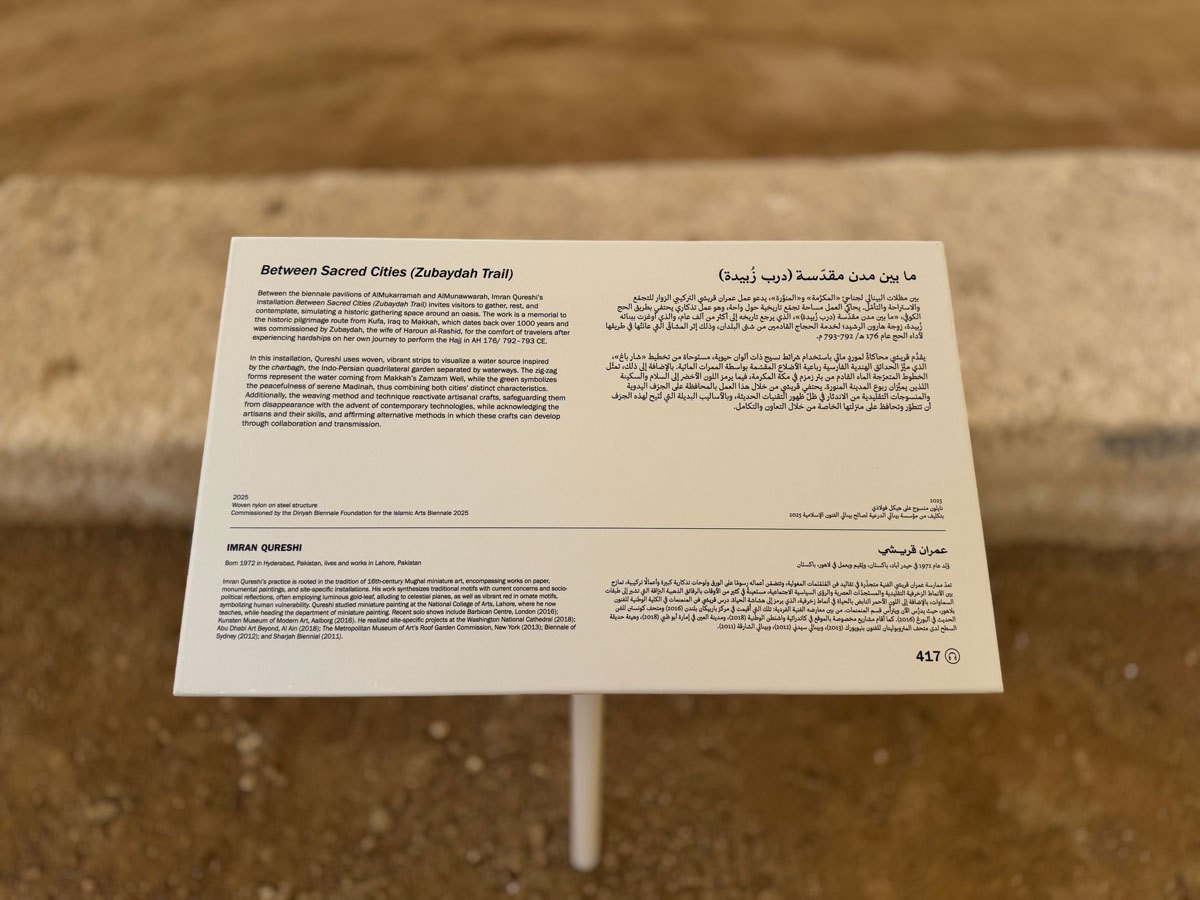DHAHRAN: The first thing you notice when you meet Dhahran-based American author Natasha Burge are her playful eyeglass frames and her focused curiosity.
Burge self-identifies as an “autistic author” — a label she finds neither empowering nor offensive. When she was diagnosed as being on the spectrum in her late thirties, she says she felt relief. And then she decided that she wanted to showcase her autism in her work.
“For much of my life I felt embarrassed about the ways autism impacts me,” she says. “I didn’t feel like I was able to do what was considered ‘normal’ and I hid my struggles because I didn’t think anyone would understand,” she says. “I felt vulnerable sharing things I had kept hidden for so long. But, as a writer, my allegiance is to the story I am telling.
“A defining feature of autism is an extreme focus on specific interests. Three of my most intense interests are autism, transcultural identity, and the culture of the Arabian Gulf,” she continues.
Burge was born in Dhahran in 1982. The Kingdom is not just ‘home’ to her — it’s a living, breathing force in her storytelling.

The Burge family in Ras Tanura in 1959 - Natasha's father Rodney is on the right of the front row. (Supplied)
“My childhood smelled of horses, tack soap, ‘oud, frangipani blossoms and the library,” she says. “My childhood tasted like French fries dipped in hummus, yellow cake topped with chocolate frosting, and late-night shawarmas eaten with friends in my garage.”
Her family’s connections to Saudi Arabia go back well beyond the 1980s, she explains. Her paternal grandfather relocated to the Kingdom from the US for work in 1957. He was joined in 1959 by his wife and children, including Burge’s father, Rodney, who was five at the time. Rodney ended up staying in Saudi Arabia for 60 years. Burge’s mother’s family, also American, arrived in the 1970s.
“Three generations of my family, on both sides, have lived in the Kingdom. It has profoundly shaped my family and we are grateful for that. My grandmother — who is now 99 — says she would have loved to stay here forever,” Burge says.
Having moved away from the Kingdom for school, Burge now lives back in Dhahran with her British-American husband, who also grew-up here.
Burge’s writing — which has been nominated for a Pushcart Prize (a US award given to literary works from small publishers) and translated into Arabic, Japanese and Chinese — does not follow conventional storytelling structures. It is highly experimental, packed with sensory imagery and acute attention to detail. Burge coined the term “skoliogeography” (the Greek word skolio can mean ‘twisted’ or ‘divergent’) to describe how she experiences space as an autistic person — blending the physical and emotional.

The cover of Burge's 2023 memoir 'Drifts.' (Supplied)
“Instead of downplaying autistic linguistic traits — repetition, non-linear chronology, echolalia, bricolage, fragmentation — as merely signs of pathology, I wanted to showcase them and celebrate them as exciting artistic interventions,” she says.
She describes her 2024 novel “The Way Out” as “a surreal portrait of a young woman’s psychological journey that could have been set anywhere in the world; I chose the Gulf because that is where I’ve lived all my life. There are a vast array of stories that emerge from this place that do not conform to outsider clichés.”
While there’s an obvious temptation to describe Burge’s work — and life — as ‘a cultural bridge,’ as her previous statement suggests, that’s not her intention. Rather, she sees the central purpose of her work to be about authenticity.
“All we can ever do is speak for ourselves. Individual authors can’t speak on behalf of every single person in an entire culture or place — nor even for the autism community,” she says.
“I hope readers come away from my work with a new appreciation of how much there is to marvel at in the mundane,” she continues. “The streets we walk every day are places of sublime beauty — if we are ready to recognize it.”





















